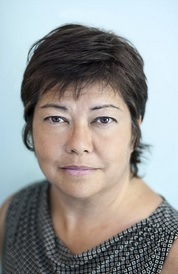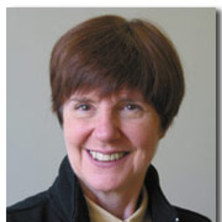Keynote Speaker: Professor Kerry Kawakami
We are excited to announce that our keynote speaker is Professor Kerry Kawakami from York University (Canada). Professor Kawakami is internationally recognised for her work on intergroup bias and ways to reduce stereotyping, prejudice, and discrimination. She is also the current editor of the Interpersonal Relations and Group Processes section of the Journal of Personality and Social Psychology.

Talk: Perceiving Race
The human face plays a crucial role in person perception because it contains valuable information about others. This may be especially the case in an intergroup context. Although research has convincingly demonstrated that perceivers are better at understanding and extracting information from faces that belong to ingroups relative to outgroups, we know surprisingly little about how people process faces from their own and other racial categories. In the current research, we investigated differences in perceivers’ attention to specific features of the faces of ingroup and outgroup targets and other biases in face perception. We also explored strategies to reduce these biases. Our results demonstrate that, relative to outgroup faces, perceivers attended more to the eyes of ingroups, are better at recognizing ingroup members (i.e., Own Race Effect), are better at identifying emotions on ingroup members, and make different trait attributions related to facial expressions on ingroup members. Our results, however, also suggest that perceived similarity and individuation instructions can reduce these biases. Together the present findings highlight the impact of outgroup categorization on visual attention and potential determinants and consequences of this process.
John Turner Medalist: Emeritus Professor Cindy Gallois
The 2019 John Turner Medal winner is Emeritus Professor Cindy Gallois from the University of Queensland. Professor Gallois is a leading expert on intergroup language and communication and has contributed to the development and extension of Communication Accommodation Theory and its utility in the health sector and in organisational and intercultural contexts.

Talk: Intergroup Communication: The Language and Social Psychology Approach
In this talk, I will explore the uniquely social-psychological ways in which we can study language and communication in intergroup contexts – gender, age, culture and ethnicity, organisations, health, law, dress and appearance, and many others. Language and communication are our most central qualities as humans, and the increasing emphasis on the details and dynamics in this area is very important to our field. It brings challenges, however, including the need for broad theoretical and methodological perspectives, and the need for interdisciplinary work. One reason for this is that language and communication always exist in a context – and when that context is intergroup (which it usually is), it implicates everything from neural processes through attitudes, beliefs, and identity to – most importantly – behaviour. I will talk about the implications through my own history and research, as well as reflecting on the skills we need as social psychologists to make a difference to intergroup communication and thence intergroup relations through our research on language and communication.
Early Career Researcher Award Winner: Dr Elise Kalokerinos
The 2019 Early Career Researcher Award winner is Dr Elise Kalokerinos from the University of Newcastle. Dr Kalokerinos holds an Australian Research Council Discovery Early Career Researcher Award Fellowship and is an emerging leader in the field of emotion regulation and its consequences for relationships, health, and wellbeing.

Talk: Emotion Regulation in the Wild
The ability to self-regulate is at the heart of effective functioning. My research focuses on understanding and harnessing this critical skill, with a particular focus on the regulation of emotion—a domain in which regulation failures are both common and costly. In this talk, I will discuss the research I have done so far towards understanding successful emotion regulation. In this research, I use experience sampling to track emotion regulation “in the wild”, mapping dynamic emotional processes during personally meaningful events. I will discuss some ways in which our regulatory instincts are flawed, as well as some regulatory skills that can help us counteract emotion regulation failures.
